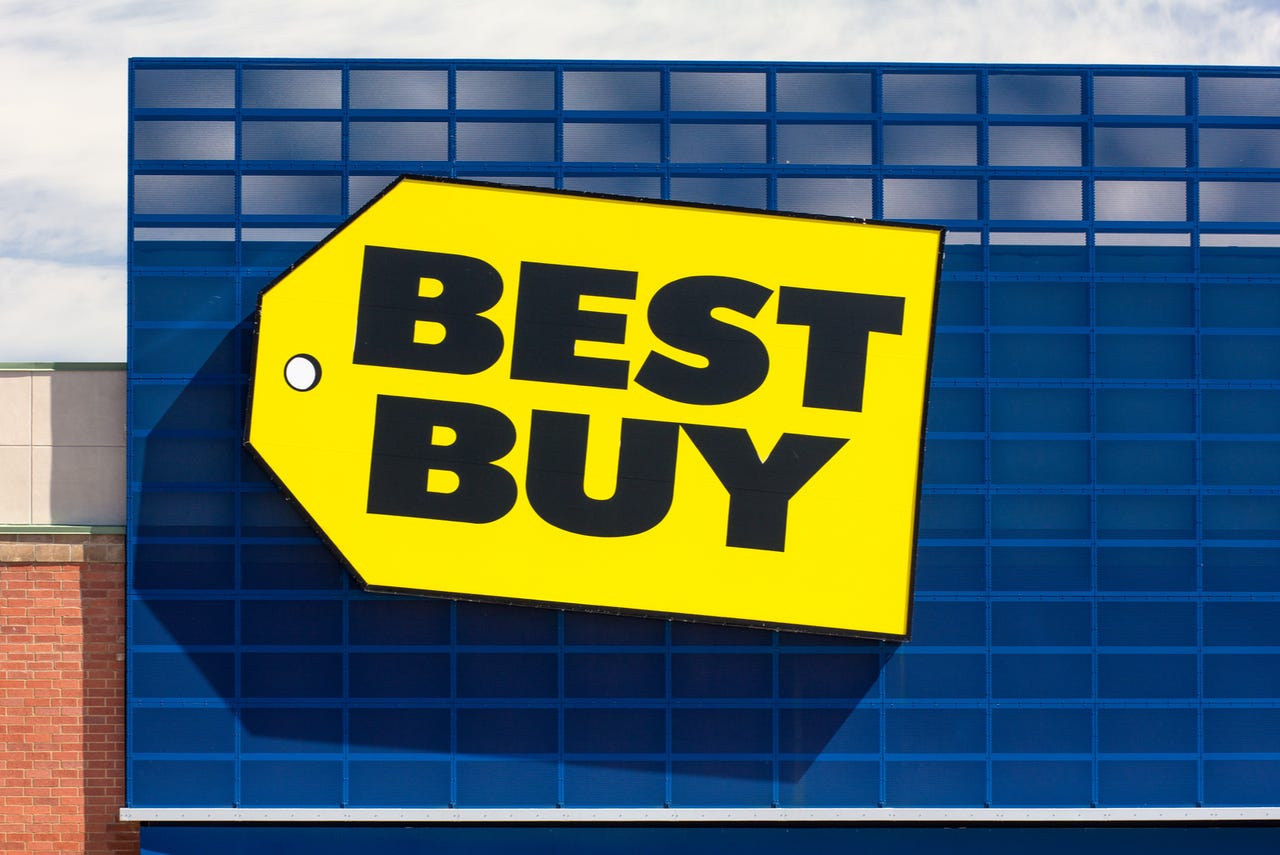I went to Best Buy four weeks ago. They still won't let me go


I love you, but please stop.
Let's go back to 1969, when our oven was built.
It had been a stalwart. It looked retro-timeless. If I could have hugged it, I would have. But it died.
Then we looked around and realized that the hood above the cooktop hadn't worked for more years than I'll admit here.
I said years, didn't I? That's given you a clue about our lives. I'm sorry about that.
"We need to get some new appliances," said my wife, who (in case you didn't know) is a scientist.
After measuring and thinking, and thinking about measuring some more, we decided to go to Best Buy. Somehow, it made sense. Best Buy has survived, and even thrived, when so many other electronics stores have gone the way of our oven.
ZDNET Recommends
Best Buy? Actually, it was better than that
We thought we knew what we wanted. Vaguely.
Samsung for a fridge and a dishwasher. Some sort of brand name we'd heard of for a range.
We walked around Best Buy and began to see things that looked as if they might work and fit. They were definitely nicer than the things we had. Our cooktop was at least 20 years old. The fridge was likely top-of-the-line during the Reagan administration.
And then we were gently accosted by a Best Buy salesperson.
We began to explain our thought processes and, oddly, he listened. He then walked round the store with us, listened some more, and gave us gentle advice.
But there wasn't a range that we liked. So he brought us over to his computer and asked what sort of range we liked.
My wife named some brand we'd happened to see online, and he instantly knew what it was. No, we hadn't pronounced it correctly.
He proceeded to show us our options on his screen. He explained which ones were immediately available. He described their various merits and flaws. He introduced us to brands we hadn't heard of -- Windster, for example -- and not once did he try to upsell us to some grotesquely exaggerated appliance.
Within perhaps 20 to 30 minutes, we'd bought everything we needed.
Except that we knew there would likely be an issue with delivery. Supply shortages abound. Yet this gentle, wonderful salesman promised us delivery on a certain date. I confess we walked out of there bemused at what a pleasant shopping experience it had been.
"What was that?," I said to my wife.
"That was pretty good," she replied.
ZDNET Recommends
Tell us again how good we were
The next day, I got an email from Best Buy with the subject line: "Your Feedback Is More Important Than Ever."
I was confused.
My feedback was ever important? Why is it so important now?
Naturally, I read on. "Your feedback is always important and helps us provide the great experiences you expect." Ah, so it's always been important, and it's not, in fact, more important than ever.
I filled out the survey. It was a pleasure. The Best Buy salesman had been utterly wonderful.
But then the e-commerce began to e-xasperate. Another email arrived. It wondered whether we were getting the most out of our new fridge. A little difficult to answer this one, as it wouldn't be delivered for another three weeks.
I ignored that email.
Still, all went quiet until delivery approached. Would it happen, we wondered. Would we suddenly be let down?
But no, everything arrived on time. A text and a phone call announced the imminent arrival. Everything entered the house smoothly.
No, but tell us again how good we were
The very same day, I discovered another survey in my inbox. This one was headlined: "Review Your Best Buy Purchase."
How am I supposed to do that when the appliances are sitting in boxes because they only just arrived a few hours ago?
Best Buy, you see, already wanted me to help its next customer. Yet even if we'd had the range magically installed, how were we supposed to review it if we hadn't even had time to cook on it?
Two days later -- oh, you've gotten there already, haven't you?
Another email: "Your Feedback Is More Important Than Ever."
No, Best Buy. We've already established that it isn't. And I already filled out the feedback survey you sent a month ago. Didn't you get it?
Worse, this email thanked me for my online order when, did you read the last survey I'd filled in, I told you how much I'd enjoyed your in-store experience.
ZDNET Recommends
Still, Best Buy was done, right?
It was. For approximately four hours.
That's how long it took for the company to send another email: "Your Appointment Is Complete. How Did We Do?" You did wonderfully, until you started to send me all of these emails.
In the month between buying the appliances and having them delivered, I received 18 various emails from Best Buy. Which, to my mind, is a lot.
I understand the purpose of surveys, follow-up emails, and selling. I know why companies send them. But once you've filled out a survey saying how very happy you were, is it really wise to send more survey requests that make you a little unhappy?
This was all in between the other Best Buy emails that suddenly multiplied their way into my inbox, begging me to buy more and more things. There's something about good e-commerce that becomes pestering e-commerce, and Best Buy came mightily close to pestering.
You did a lovely job, Best Buy. You should give your in-store salesman a large raise. Great employees are hard to come by.
But please, are we done with the emails now? Or are you going ask for the recipes of everything we've cooked on the range?